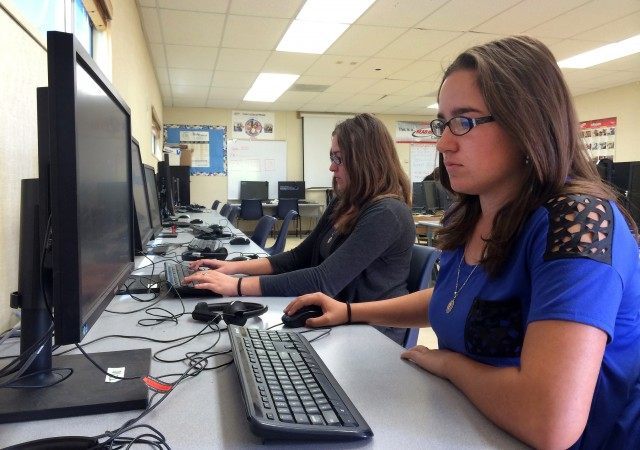Imagine a government supercomputer that keeps a file of your child’s personal information.
Imagine the government data-mining not just your child’s name, address, and school, but details of his entire formal education, including his college major and what specific classes he takes.
Imagine the government continuing this invasive practice into your child’s career, recording what jobs he holds, how much money he makes, whether he loses a job or draws unemployment, whether he serves in the military, returns to school, or even goes to jail.
Does that strike you as Orwellian? Of course it does. But some “experts” in government and advocacy organizations disagree with you, and these people are now working behind the scenes to bring us one step closer to this dystopia—for our own good, of course.
This is something called the “student unit-record system.” Central planners view the education system primarily as a means to build a workforce for the managed economy, and they can do this more effectively if they know everything there is to know about future workers—i.e., our children.
The idea would be to analyze practically every lifetime activity of every student and determine how his various educational experiences affected his outcomes. As U.S. Education Secretary Arne Duncan has mused, “We want to know whether Johnny participated in an early learning program and completed college on time and whether those things have any bearing on his earnings as an adult.”
So wouldn’t it be grand to have a central federal warehouse holding every bit of Johnny’s data?
Fortunately, in an uncharacteristic burst of good sense back in 2008, Congress enacted a statutory ban on federal tracking of college students into the workforce. But statist planners have been patiently waiting for a moment to overturn that constraint, and now it appears that moment has arrived.
The current excuse for allowing a federal student unit-record system is that consumers need more data to evaluate the value of attendance at various colleges and universities. Do students at College A incur more debt than those at College B, or get better jobs?
This idea led to the 2012 Student Right to Know Before You Go Act, co-sponsored by Sen. Ron Wyden (D-OR) and Sen. Marco Rubio (R-FL), which would have swept away barriers to federal compilation and tracking of personal information on college students—for their own good, of course.
Though the Student Right to Know Act died in committee, the idea behind it did not. Last month Sen. Lamar Alexander’s (R-TN) Committee on Health, Education, Labor & Pensions (HELP) released a white paper that may have inadvertently resuscitated the prospect of a federal student unit-record system. The danger is that a repeal of the statutory ban will find its way into the upcoming reauthorization of the Higher Education Act.
The usual suspects have endorsed the repeal. A letter from something called the Postsecondary Data Collaborative, which includes the U.S. Chamber of Commerce and 26 other proponents of a data free-for-all in service of workforce development, urges the HELP committee to allow an extraordinarily expansive federal student data warehouse.
This repository should include, they argue, “Federal Student Aid data . . . employment and earnings data already held by federal agencies, such as the Social Security Administration/Internal Revenue Service . . . and data on students, veterans, and members of the military in the Departments of Defense and Veterans Affairs systems.”
Yes, let’s hold every conceivable piece of data about American citizens in one easily accessible, easily hackable warehouse. What could go wrong?
Parents concerned about the Common Core national standards scheme already know that the federal government has incentivized the states, through Common Core and related structures, to build massive statewide longitudinal data systems (SLDS) for K-12 students. The data contained in these systems may contain even the most personal information, such as psychological and health-related data. Now the proponents of a federal student unit-record system are urging that the data in these data systems be used to populate the federal system.
Johnny could be tracked by the central planners throughout his lifetime. And there is no telling who else might be able to access that data.
The Parent Coalition for Student Privacy has urged HELP to maintain the ban on a unit-record system. The Coalition notes not only the possibility, but, in fact the certainty of student privacy violations through hacking, re-identification of data, etc., but also the danger of the ever-expanding authorized uses of the data.
“We believe,” the Coalition warns, “that a federal data system with as much information as a unit-record system would quickly turn into a federal lending library available for interagency browsing for unspecified future purposes.”
Once in effect, a federal student unit-record system would be impossible to contain. Federal bureaucrats, private foundations, researchers, and even for-profit corporations would find its contents too alluring to resist.
But maybe there’s nothing to worry about. Think of all the wonderful things these unknown people can do once they access everything there is to know about our children—for our own good, of course.
Emmett McGroarty is American Principles Project’s education director. Jane Robbins is a senior fellow at American Principles Project.

COMMENTS
Please let us know if you're having issues with commenting.